Catalyzed and empowered by crowdfunding and a newfound ability to avoid banks, venture capital is creating a new class of supremely successful solopreneur inventors building amazing, innovative products, fueled almost entirely by the crowd. We are living in the start of a golden age of creativity, maker madness and possibility, where others around us – and not big business – are defining the future.
But as a creator, an innovator and a changer of the world, where do you turn? With crowdfunding growing like crazy and wave after wave of new and innovative platforms arising to give inventors, artists and individuals the chance to shine, what platform should you use when raising money for your business? Should startups looking to shine go the Kickstarter or Indiegogo route when looking to launch something spectacular?
Fees used to be one of the larger differentiators between the platforms – Indiegogo’s fees were 4% for Fixed Funding, and 9% for Flex Funding. In July 2015, though, Indiegogo changed their fee structure to match Kickstarter’s fee, which is 5%. So, what other factors separate the two platforms?
Why Choose Kickstarter?
At Art of the Kickstart, we love Kickstarter and the amazing community of creators, backers and innovators this platform has created. Kickstarter is a phenomenal first step for companies looking to launch products and ideas into the market. From amazing tech companies like Oculus and Pebble to killer consumer brands like Coolest, startups are setting sail from successful Kickstarter launches with greater and greater frequency as both the size and quality of the community and backer base continue to grow.
Backer Support
Kickstarter brings a powerful organic reach due to its extensive backer community. If you have an awesome product and are able to get your own friends and family excited about it, your campaign can rise quickly to the top and receive extensive coverage and support from Kickstarter’s loyal fan base.
Campaign Reviews
In spite of recent easing of regulatory campaigns on the part of Kickstarter, the process of submitting a project to the crowdfunding king still involves a great deal more review work on the part of the Kickstarter staff. This added hassle actually works to empower the platform as a whole and leads to a higher overall quality and funding rate over its rival Indiegogo.
Publicity
In the United States, at least, Kickstarter is king. Nearly synonymous with crowdfunding as whole, Kickstarter dominates both public perception and media coverage in the largest marketplace on the planet.
Why Choose Indiegogo?
Despite Kickstarter’s many strengths, Indiegogo has helped crowdfunding grow and evolve around the world, and is a better choice for many products. As a more open, inviting and flexible platform to build upon, Indiegogo has seen rise to ridiculous success and many million dollar campaigns.
Less Refined
Indiegogo campaigns are arguably much easier to launch than Kickstarter campaigns for the sole reason that it is an entirely open platform. There are no review processes, unexpected errors or other issues sometimes present on platforms like Kickstarter. This means many earlier stage companies, ideas and inventions can come to Indiegogo looking for help and actually get it. You don’t need an Apple-esque product, just a great idea, the ability to present and a bit of marketing insight. Unfortunately, because of its simplicity, scammers become a much greater issue here than on Kickstarter, where more oversight eliminates almost all forms of these egregious behaviors.
Democratized
Indiegogo is arguably a much more fair and favorable platform for all when compared to Kickstarter. Whereas Kickstarter staff picks, while almost always cool, provide unfair advantages, Indiegogo chooses not to actively advantage any campaigns, regardless of merits. Alternatively, Indiegogo highlights projects based on the Gogofactor, an algorithm that takes into account things like traffic, funding and more.
Low Stress
Every Kickstarter creator knows the stress of trying to hit a funding goal to make an idea a reality. Indiegogo removes the all-or-nothing barrier by offering Flex Funding, taking tremendous amounts of pressure off creators.
High Risk, High Reward
Let’s look deeper into the All-Or-Nothing approach. There is a heightened sense of excitement and anticipation among backers who are unsure if the campaign will fund. For many backers, this makes the project more mysterious, alluring and appealing. On top of this, many creators find that the closer you get to successfully reaching your goals, the greater the outpouring of support will be. People want to root for the winner, so they will go to great lengths to make sure your campaign succeeds, they get their products and of course that they get that internal feeling of self-satisfaction because they helped make all this possible.
In such an uncertain environment, campaigns that hit their campaign goals are often rewarded handsomely. This is where million-dollar campaigns are born. It doesn’t always happen, but when it does, it is a wonderful thing to witness.
Kickstarter Vs. Indiegogo Stats
No examination of the two juggernauts of crowdfunding would be complete without an in-depth dive into the numbers. Fortunately, Kickstarter makes it easier to learn more about projects launched on the platform.
Here is Kickstarter’s success to date:
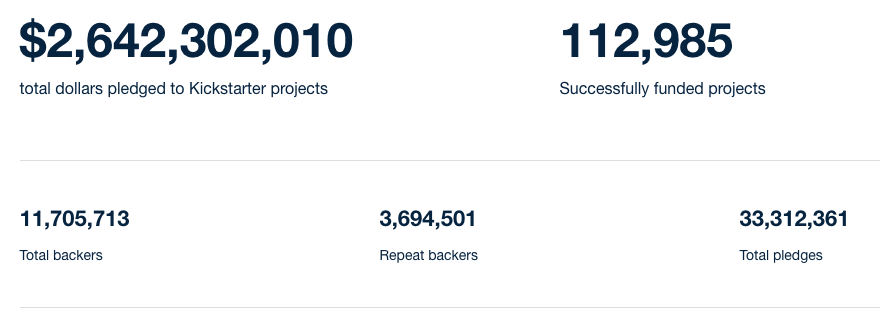

Luckily for us, Kickstarter makes it very easy to show off their successes to the world. Despite the fact that preemptively ended campaigns may or may not actually reflect in the data, it is clear that Kickstarter as a crowdfunding platform is plenty healthy and teeming with life. Unfortunately the comparison with Indiegogo is a bit trickier as the open and inviting platform that Indiegogo is seems rather unwilling to disclose all the stats and numbers needed to really help to tell the story.
As luck would have it, however, a duo of crowdfunding-loving tech guys decided to uncover the truth behind Indiegogo. They created a program and scraped all the data of past Indiegogo campaigns to put forth compelling statistics regarding the Kickstarter rival and how projects on their platform perform. While the data may not be completely current, its the best we got.
The biggest takeaways here are:
- $2.29 billion into 112,985 projects means on average each successful project has raised about $20,268
- Kickstarter’s success rate is around 35%
The comparison with Indiegogo’s stats is a bit trickier, though, because the platform does not disclose all the stats and numbers needed to help to tell the story.
However, a little digging online gives us some historical snapshots:
- In 2015, more than 2.5 million people from 226 countries and territories contributed to 175,479 campaigns
- By the end of 2015, more than $800 million total had been raised on Indiegogo
- It’s hard to find hard data detailing Indiegogo’s success rate, but in August 2014, Shopify estimated it to be about 17%, which roughly aligns with other data we’ve collected
All of this is in line with the lighter rigors applied to Indiegogo campaigns as opposed to Kickstarter. Anyone can launch a campaign on Indiegogo, so the startups on the platform tend to be less prepared, less sexy and obviously a little less successful than their Kickstarter comrades.
Which is Better: Kickstarter or Indiegogo?
The truth is, however, both Kickstarter and Indiegogo are great choices to get a business started. If you are comfortable with Indiegogo, go that route. If Kickstarter is your cause, hop on board. Regardless, when deciding between Kickstarter and Indiegogo, do your research. Check out Kickstarter, Indiegogo and even other platforms to see what is available. Find where your particular niche or type of product performs well and go for that.
Note: This post was updated October 5, 2016.

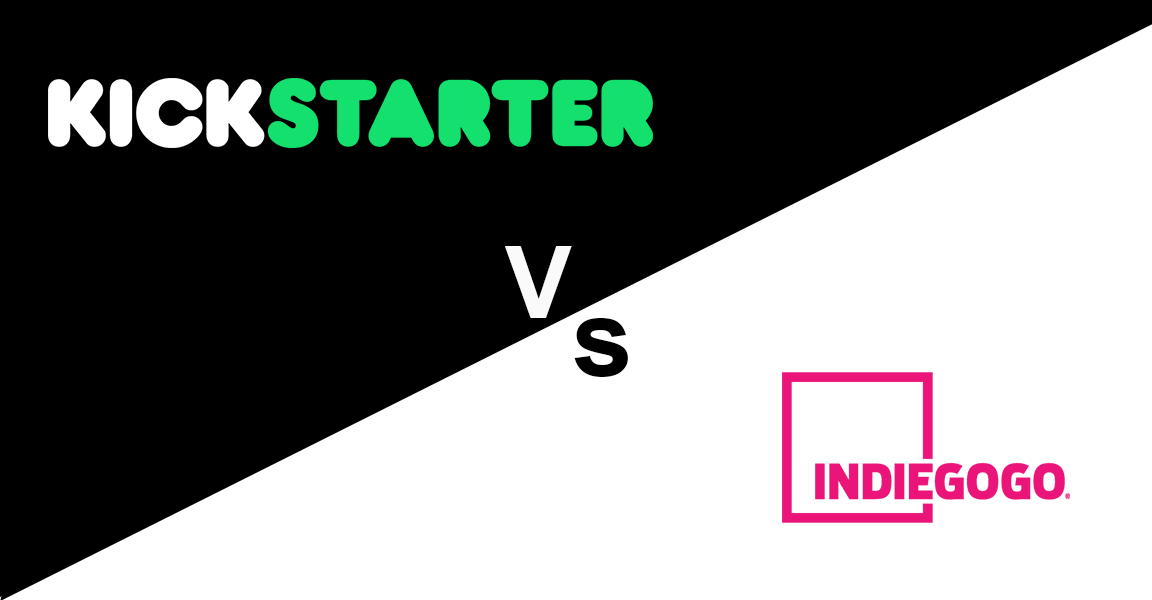

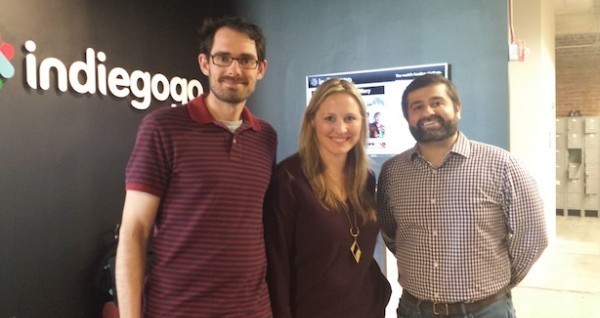

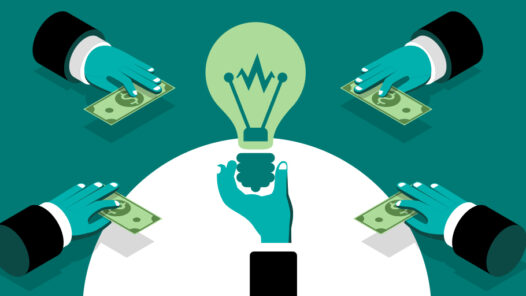
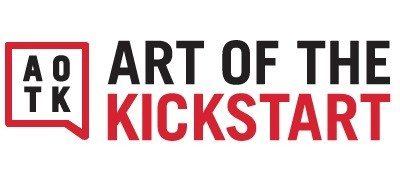
HeadFunder, Tilt and others will innovate Kickstarter and IGG. They are dying breeds.
you think? i would say your very very early and off on a prediction like that but other platforms are doing some pretty interesting stuff as well.
Do you still use myspace? Me neither Matt. I like your skepticism however technology is always innovating.
The reason why I say Tilt is because of a few reasons:
1. They have opened up a way to gather money for small things as well as big.
2. They even offer 0% fee to collect money in a group.
3. They have an open for people who want to white label.
HeadFunder is way smaller but they are on my watch list for a few reasons:
1. They are brand new and making lots of noise on social media.(how I found them)
2. They launched two platforms in less than half a year. HeadTalker is their other site which goes hand in hand with crowdfunding.
Another one I forgot to mention is Pozible
1. They have an awesome looking site
2. It looks like they are growing in other countries but started in Australia. This gives them an international edge over Kickstarter and IGG because they are coming out of a different country.
3. They have a self hosted solution now which Kickstarter and IGG do not provide.
Neither of these sites have raised near anything like Kickstarter or IGG however that could change quickly.
I think we will see a big change in the years to come especially if Kickstarter or IGG sell out which I have an odd feeling they might soon.
Thanks for commenting back and I enjoy reading your articles a lot. I will chime in more often.
Glad you like the articles. I enjoy hearing from people, especially ones real into the crowdfunding space like you seem to be.
You must admit that there is a massive difference between being an industry leader and being a dying breed. Is Apple a dying breed? Could probably argue Microsoft is, but not Apple or Kickstarter, not yet at least.
In terms of fees audience trumps that everytime. Amazon charges more than Ebay or other providers cause they have much much much bigger, better customer base.
I certainly see these sites growing in the future, but as crowdfunding in general is on a rising tide all boats will soar. Certainly someone else could come and take the top spot, thats business but its awhile off right now imo.
Great article! Gotta say, I agree with Matt.
I mean, the Myspace point is a good one, James. We can’t just assume that Kickstarter and Indiegogo are going to be huge then just because they’re huge now.
I’m thinking about how Yahoo was big then, and Google totally blindsided them. But at the same time, Kickstarter wasn’t the first crowdfunding site on the block either. Maybe Kickstarter’s actually Google, right?
Another big factor is that these are business sites, and reputation is key. Hype and social media heat are one thing – but the new kids on the block will need to prove themselves in reliability, and building a unique culture on their site. It’s more than just making a splash. It’s winning a rightful place on top of the heap – or at least a place.
Thanks for chiming in Ed.
Yeah, only time will tell I suppose.
I could see it happening but don’t buy that its already almost upon us personally.
How did you get into crowdfunding?
Kickstarter filters projects quite aggressively, reportedly rejecting around 25% of submissions. This article does not take this into consideration – if it did I’d like to suggest that Indigogo would compare far more favourably.
Matt, you said that Indiegogo was more innovative than KS in your podcast. I’m curious if you can give a quick breakdown how so. Thanks.
[…] success rate is around 35% while Indiegogo’s estimated to be around 17% according to Art of the Kickstart. This seems damning for Indiegogo, but you have to consider that its platform is more open to a […]